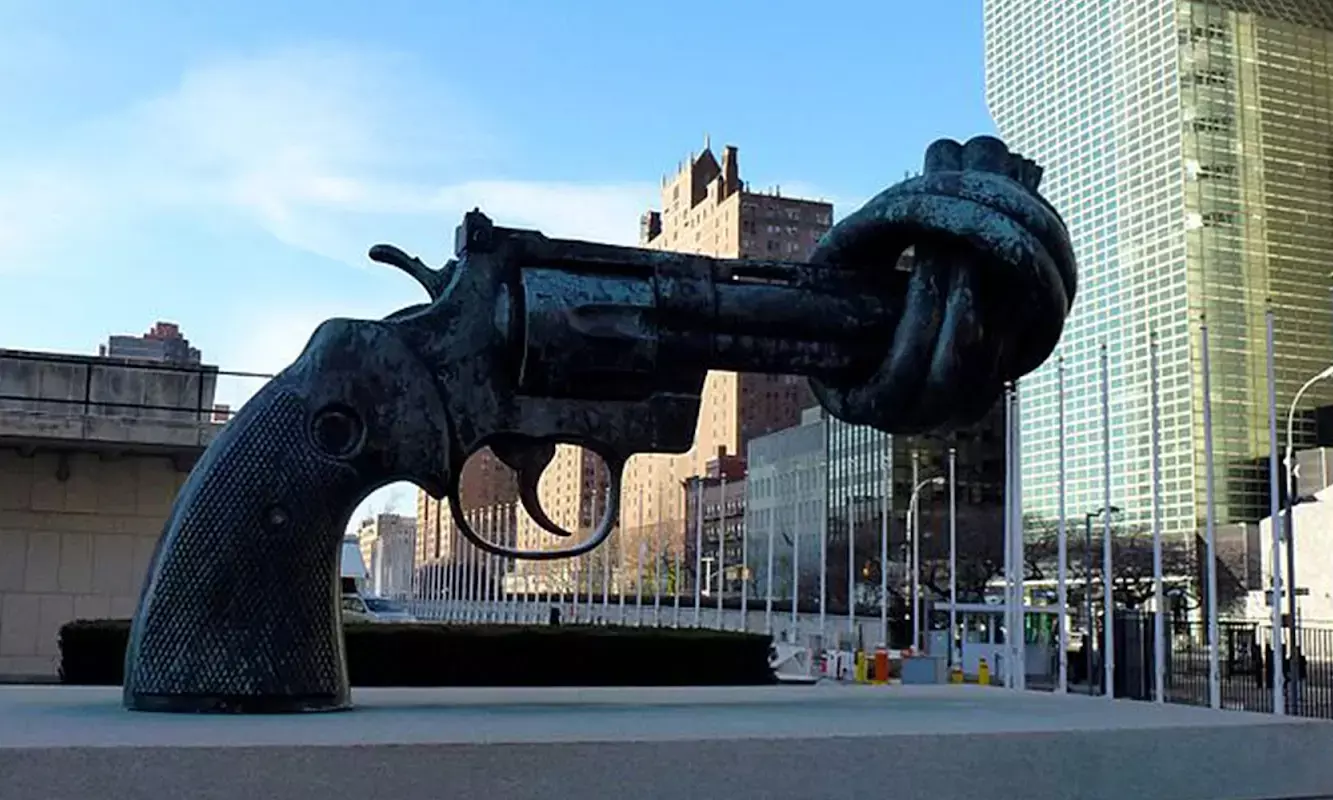Global Disarmament And An End To Nuclear Apartheid
Western hypocrisy

The spectre of continued U.S. and Israeli military strikes on Iran’s nuclear infrastructure looms once again. These threats are neither novel nor surprising. They are part of a deeply entrenched and dangerous system of nuclear apartheid—where a handful of powerful states determine who may possess nuclear capability, while they themselves continue to expand, modernise, and weaponize their own arsenals. This is not disarmament. This is nuclear colonialism in action.
At the heart of the global nuclear order lies an unforgivable contradiction. The five permanent members of the UN Security Council—the United States, United Kingdom, France, Russia, and China—retain and even upgrade their nuclear stockpiles, while insisting that the rest of the world abide by the restrictions of the Non-Proliferation Treaty (NPT). Israel, which has never signed the NPT, operates as an undeclared nuclear power with full Western backing.
Iran, by contrast, is repeatedly sanctioned, surveilled, and threatened—despite remaining a signatory to the NPT and having allowed international inspections under the now-defunct JCPOA which, when signed in 2015, imposed restrictions on Iran's civilian nuclear enrichment program in exchange for sanctions relief. The issue is not legality; it is geopolitics. Certain states are allowed nuclear power because they align with Western interests; others are demonised because they challenge them.
This is not non-proliferation—it is nuclear privilege, a form of strategic apartheid in which power decides who is trustworthy and who is not.
The hypocrisy deepens when we examine the so-called nuclear umbrella. States like Japan, Germany, South Korea, and Australia have opted not to develop their own arsenals. Yet they enjoy nuclear protection through their military alliances with the United States. These countries live under the safety net of U.S. deterrence while advocating for non-proliferation elsewhere.
Their security is assured by weapons they do not control and refuse to denounce. This duplicity reinforces the idea that the right to nuclear deterrence is not a matter of law, but of alliance and race. It ensures that nuclear power remains concentrated in the hands of a Western-led elite, preserving the very hierarchies the world claims to be dismantling.
Often sidelined in nuclear debates, Africa carries moral authority forged through the twin experiences of colonialism and resistance. The Treaty of Pelindaba declared Africa a nuclear-weapon-free zone. Yet African nations, many of whom bore the brunt of foreign nuclear testing and Cold War proxy wars, are not offered a seat at the table in disarmament talks.
France tested nuclear weapons in Algeria. The legacy remains in radioactive soil and in generational trauma. If disarmament is to be global, Africa must not be a footnote—it must be a leading voice calling for justice-based security, not weapons-based power.
No discussion of nuclear injustice can ignore the Israeli exception. Israel’s nuclear arsenal -undeclared and uninspected—sits alongside its regime of racial apartheid against Palestinians. A state that refuses to define its borders, occupies land in violation of international law, and denies millions their basic rights is somehow deemed responsible enough to possess weapons of mass destruction.
Meanwhile, Iran, which has abided by international obligations, is portrayed as a rogue state. This is not security policy -it is strategic racism.
Israel must be held accountable. Disarmament in the Middle East cannot be built on the myth of Israeli exceptionalism. If Iran must be denied the bomb, so must Israel. Anything less is hypocrisy—and history shows that hypocrisy breeds resistance, not compliance.
The idea that nuclear weapons prevent war has become a near-religious belief among policy elites. But deterrence is not peace. It is a constant gamble. The world has survived multiple close calls—from the Cuban Missile Crisis to near-launches triggered by computer errors and false alarms. In South Asia, the India-Pakistan nuclear standoff has nearly spiralled out of control more than once.
Deterrence is not sustainable—it is dangerous. It is also expensive. As the climate crisis deepens, trillions are being poured into nuclear modernisation programmes. These are funds stolen from health, education, food, and planetary survival.
Partial disarmament and selective enforcement are recipes for conflict. Either all states have the right to possess nuclear arms - or none do. The current system offers no justice and even less safety. It is nuclear apartheid—and it must be dismantled.
South Asia and the Middle East must become nuclear-free zones. India, Pakistan, Israel, and Iran must be brought into inclusive, non-coercive frameworks of mutual disarmament. Western pressure without Western disarmament will not work. The burden of peace cannot rest solely on the shoulders of the South.
Let us remember: the United States is the only country to have ever used nuclear weapons—on civilian populations in Hiroshima and Nagasaki. That act alone disqualifies it from any moral leadership in the nuclear debate. To this day, Washington refuses to apologise, let alone acknowledge the full human toll of its actions.
To place the future of nuclear peace in the hands of the U.S. or its strategic partners is to accept a future built on impunity, not justice.
The call of our times must be unambiguous: No more nuclear apartheid. No more impunity. No more illusions. A nuclear-free world—now.
Global peace cannot be policed from war rooms. It must be constructed through justice, honesty, and courage. The people of the world deserve a future free of the bomb. Let us not wait for catastrophe to wake us up. Let us choose disarmament—not because it is easy, but because survival demands it.
Ranjan Solomon is a political commentator and global justice advocate writing from the Global South perspective. He works at the intersection of decolonisation, human rights, and anti-militarism. The views expressed here are the writer’s own.



